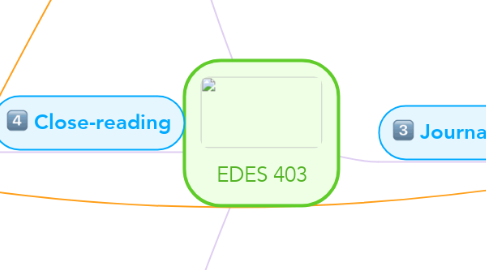EDES 403
by Araceli Campos


1. Vocabulary
1.1. Word conversation game: encourage peer discussion and use thesarus.
1.2. While students are reading independently, they can use a VocabMark to write unfamiliar words they encounter in their reading. This allows for an immediate means of interacting with new terms.
1.3. Tier 2 words are important to incorporate into lessons because they can be applied across all academic content areas.
1.4. Introduce new vocabulary by stating the category the term applies to and specific features to distinguish the term from others.
2. Close-reading
2.1. An image, or artwork, is considered text.
2.1.1. An artwork can be closely analyzed by using technology (e.g. overhead, Google Art Project website).
2.2. Promote active reading of the text by having text-based questions that require the student to cite and reference back to evidence found in the text.
2.2.1. questions can be: critical, inferential or literal
2.3. Students are encouraged to underline or circle parts of the text with a purpose (e.g. when studying impressionism, students can circle the application brush strokes to evoke a sense of movement).
2.3.1. give reading a purpose!
3. Technology
3.1. Can be used in grading quizes with an app (e.g. grade cam, instagrade).
3.2. Use online tools like the Essay Map to allow students to formulate and revise an outline to write an essay.
3.3. A teacher may also implement students to create a Mind Map in order to review information by having students make connections between previous and new information.
3.4. Technology such as audio books or ebooks can also be used as supports for Enlish Language Learners.
4. Journals
4.1. Students can reflect and self-assess their work.
4.1.1. This can also serve as a form of assessment for the instructor.
4.2. Writing improves comprehesion and fluency. It is also congruent with reading.
4.3. The journal writings reveal the student's prior knowledge and inform the teacher's instructional plan. Informal writing is like thinking on paper.
4.3.1. free-call
4.3.2. word associations
4.3.3. structured questions
